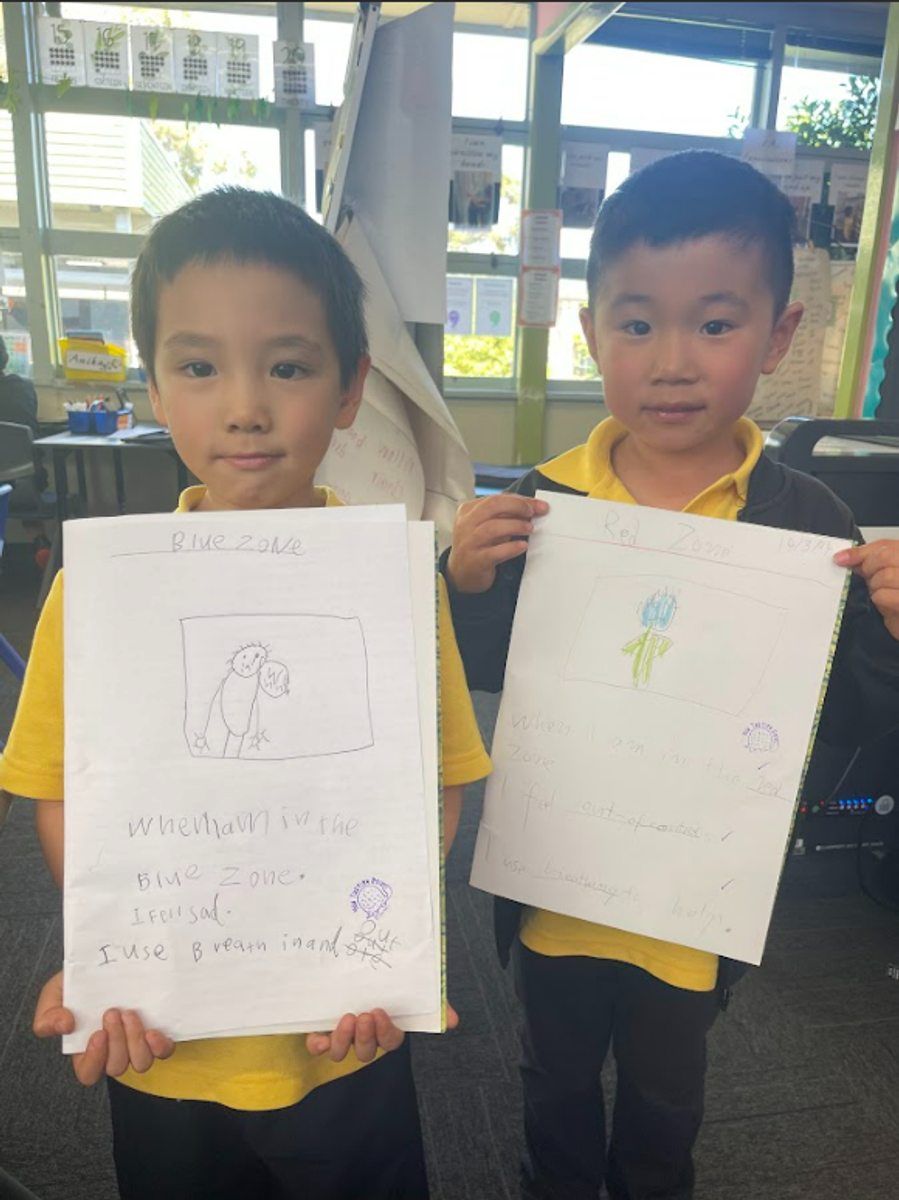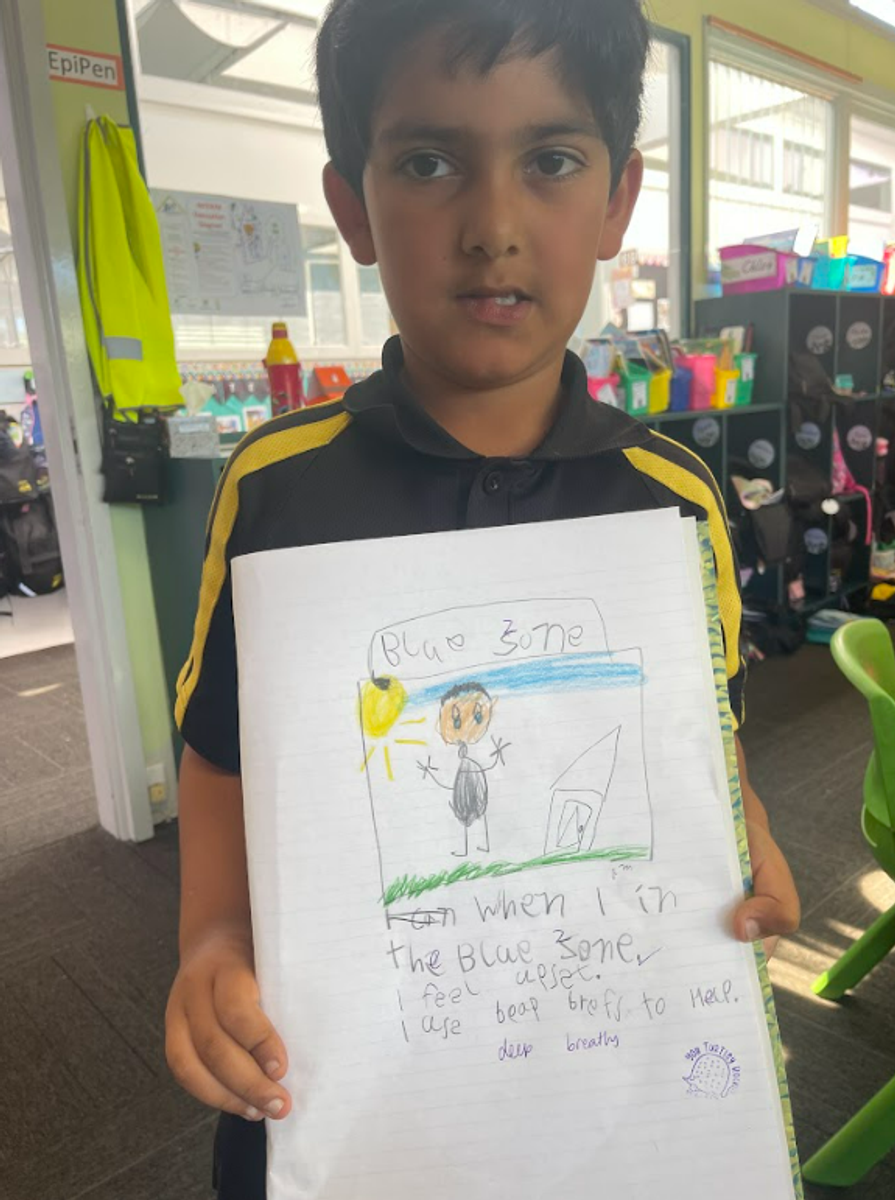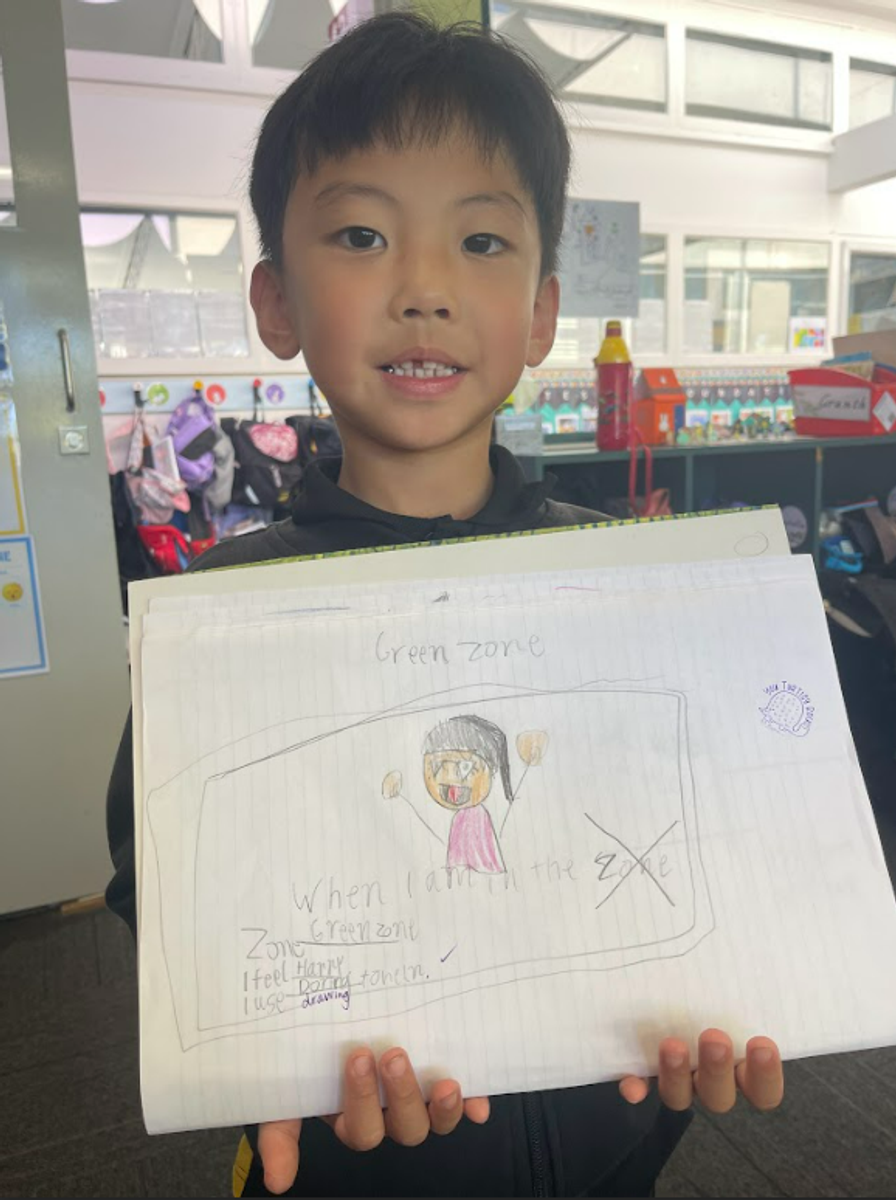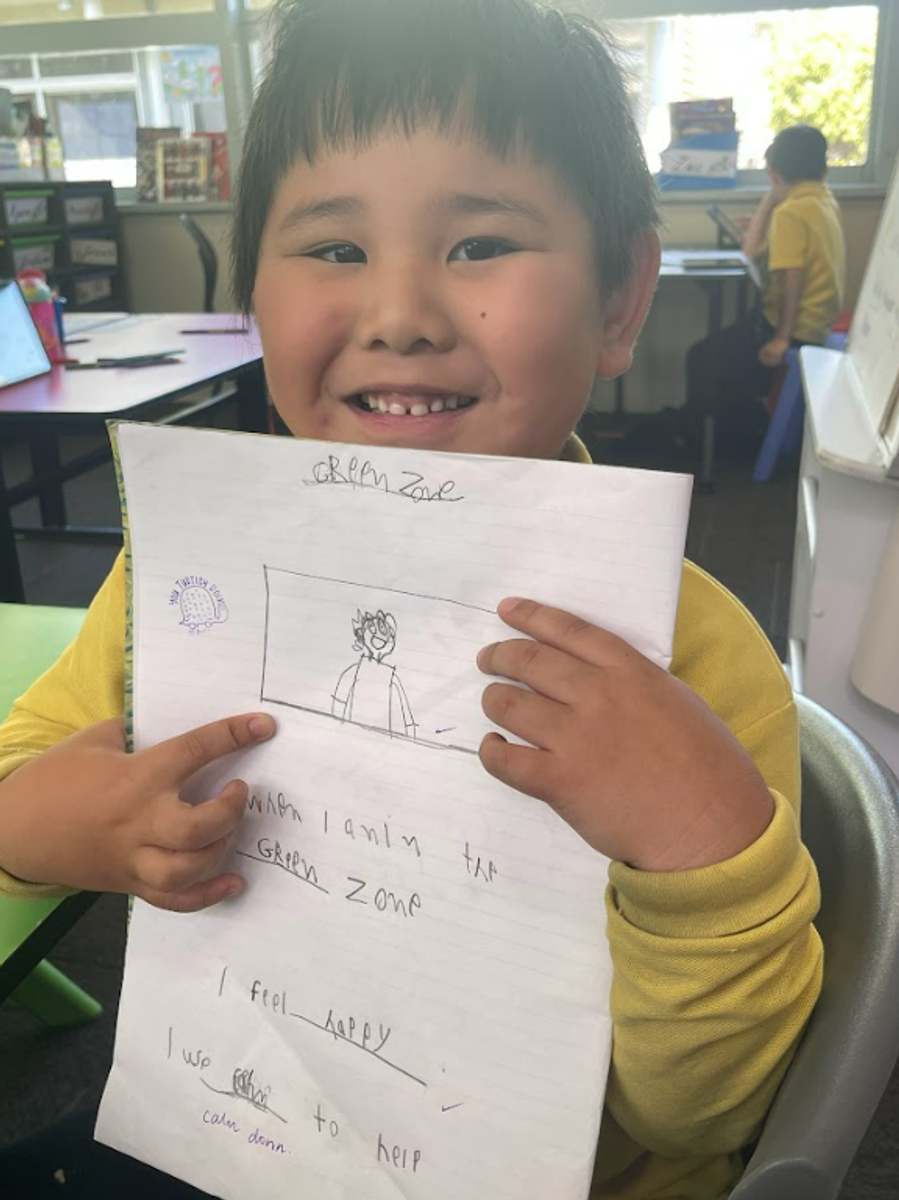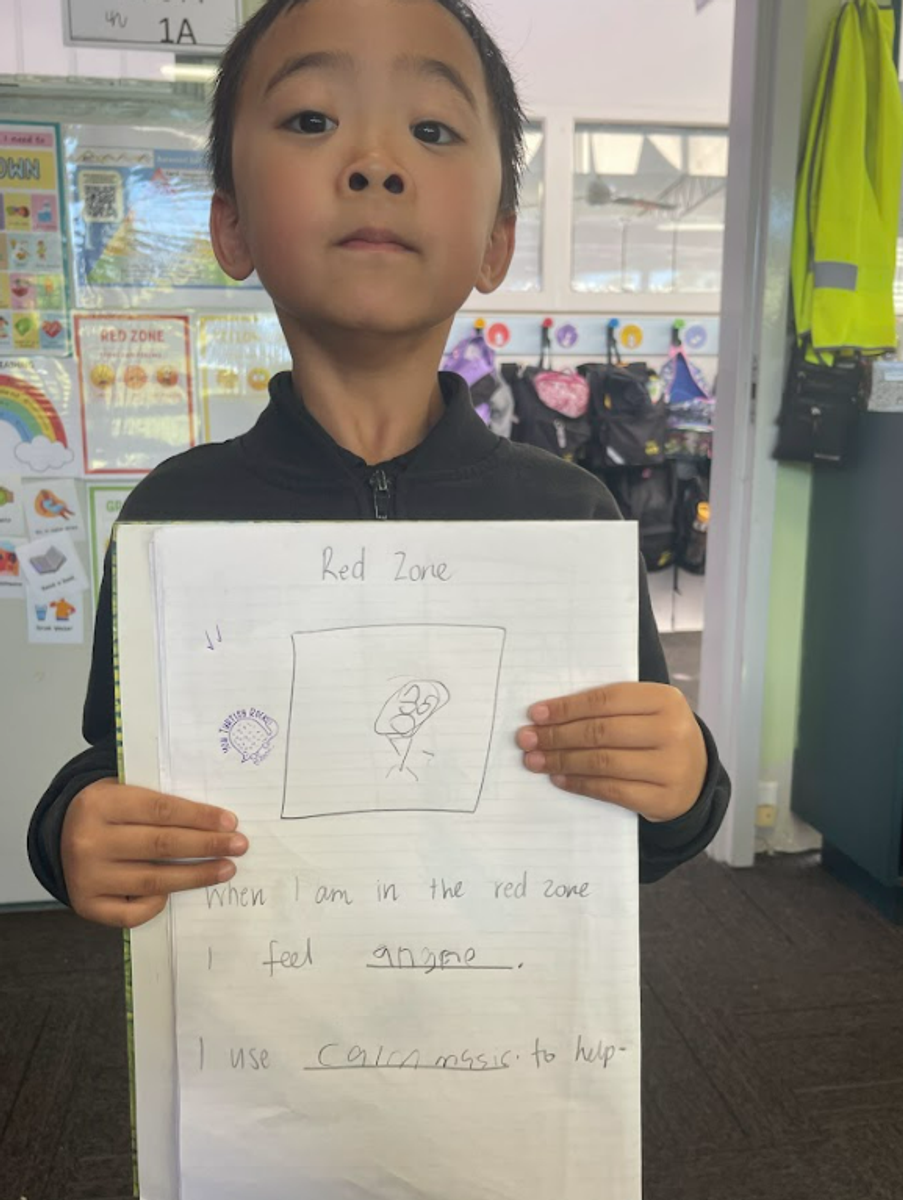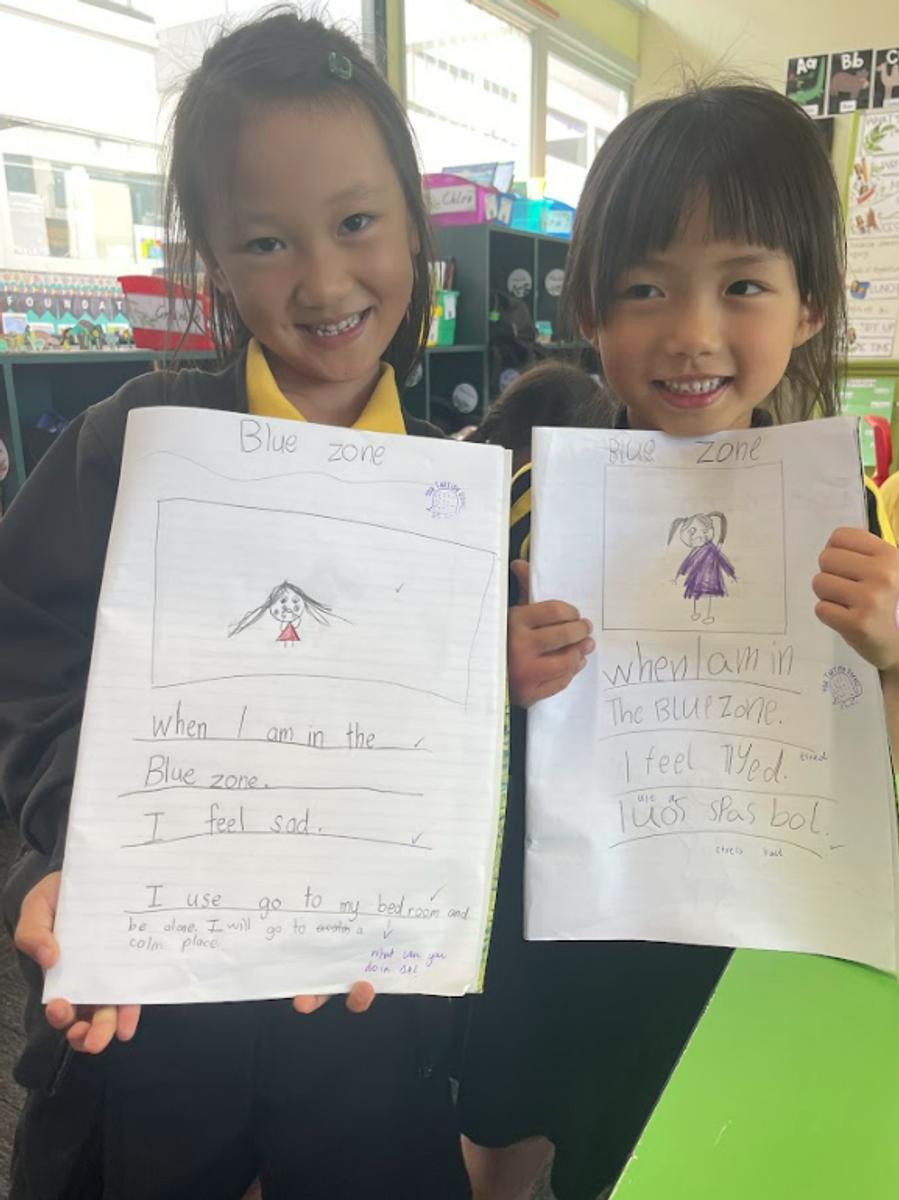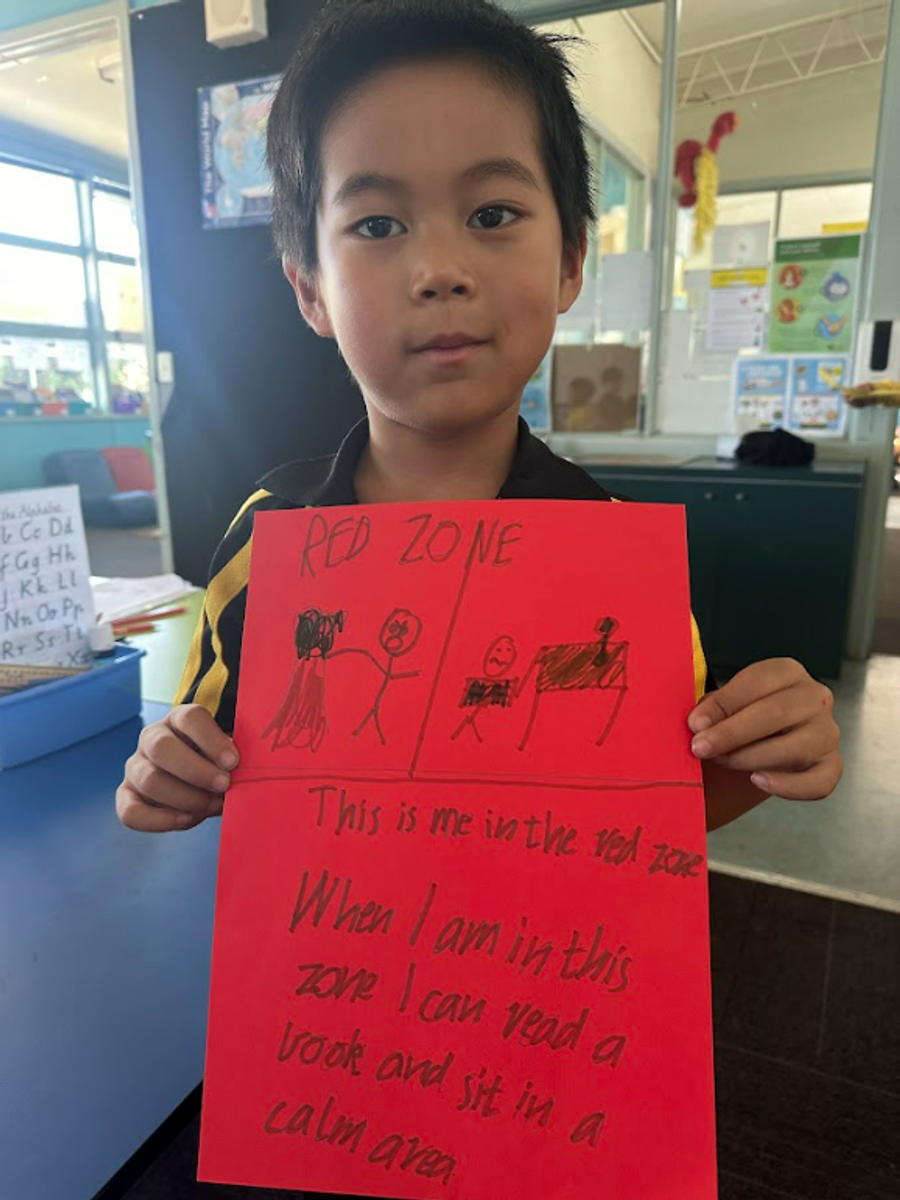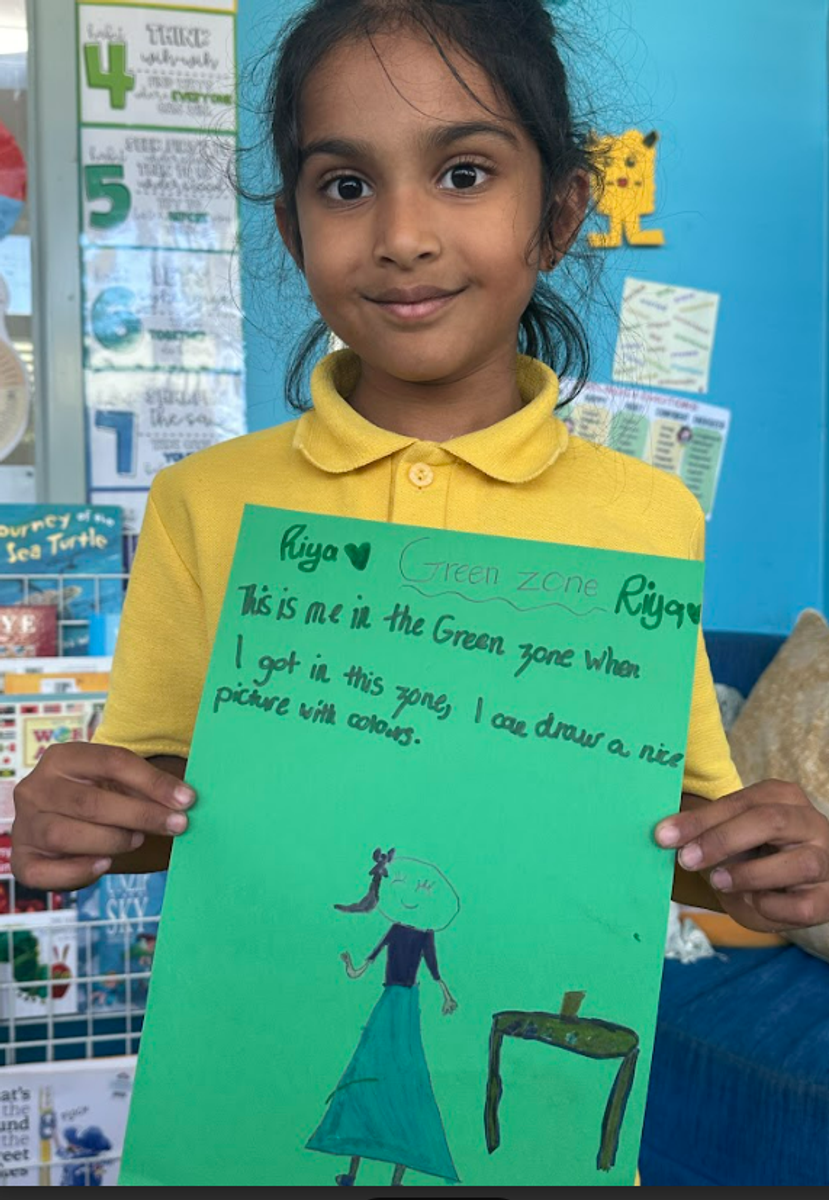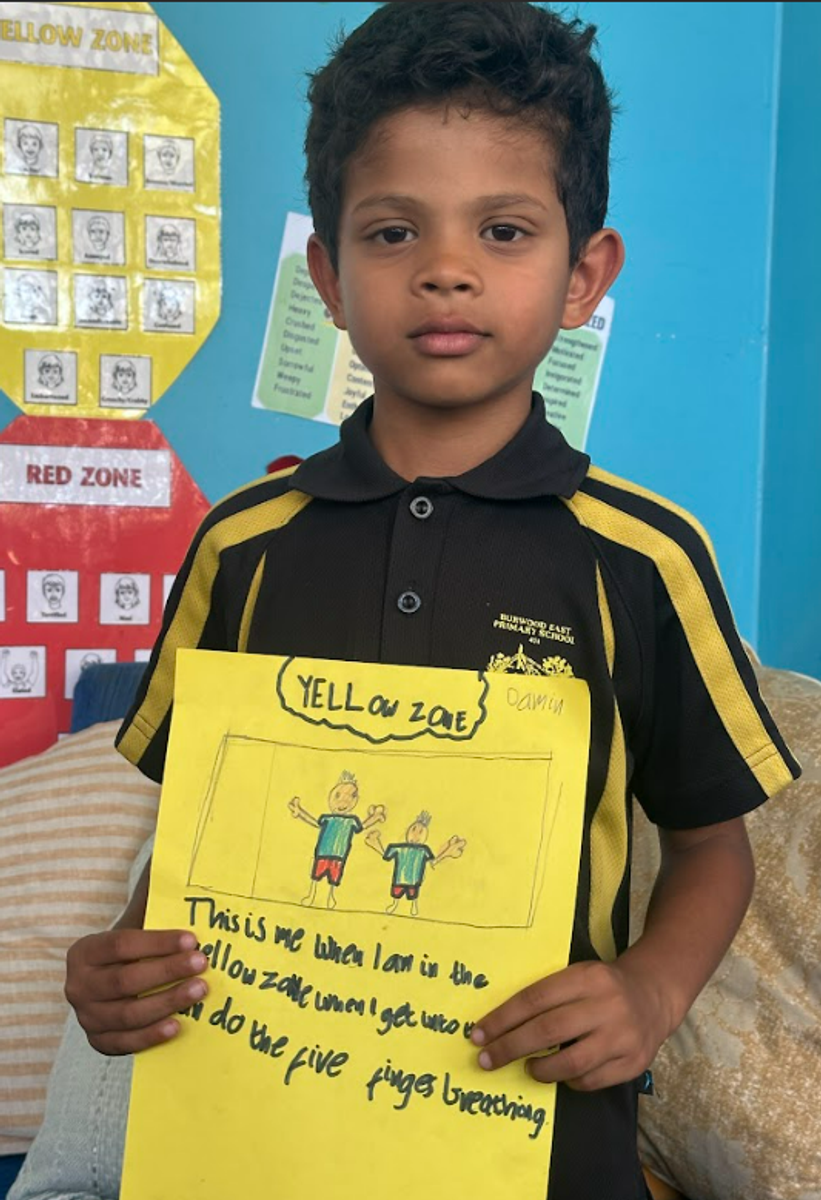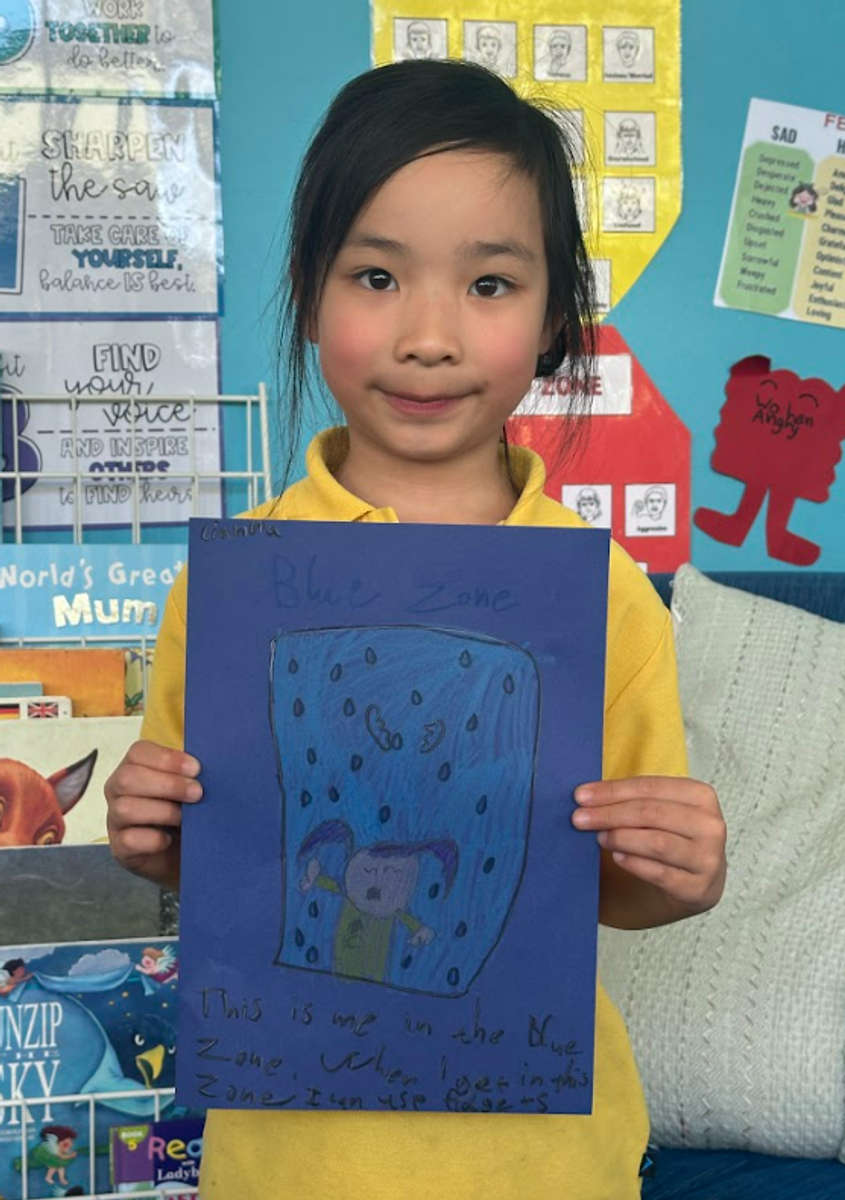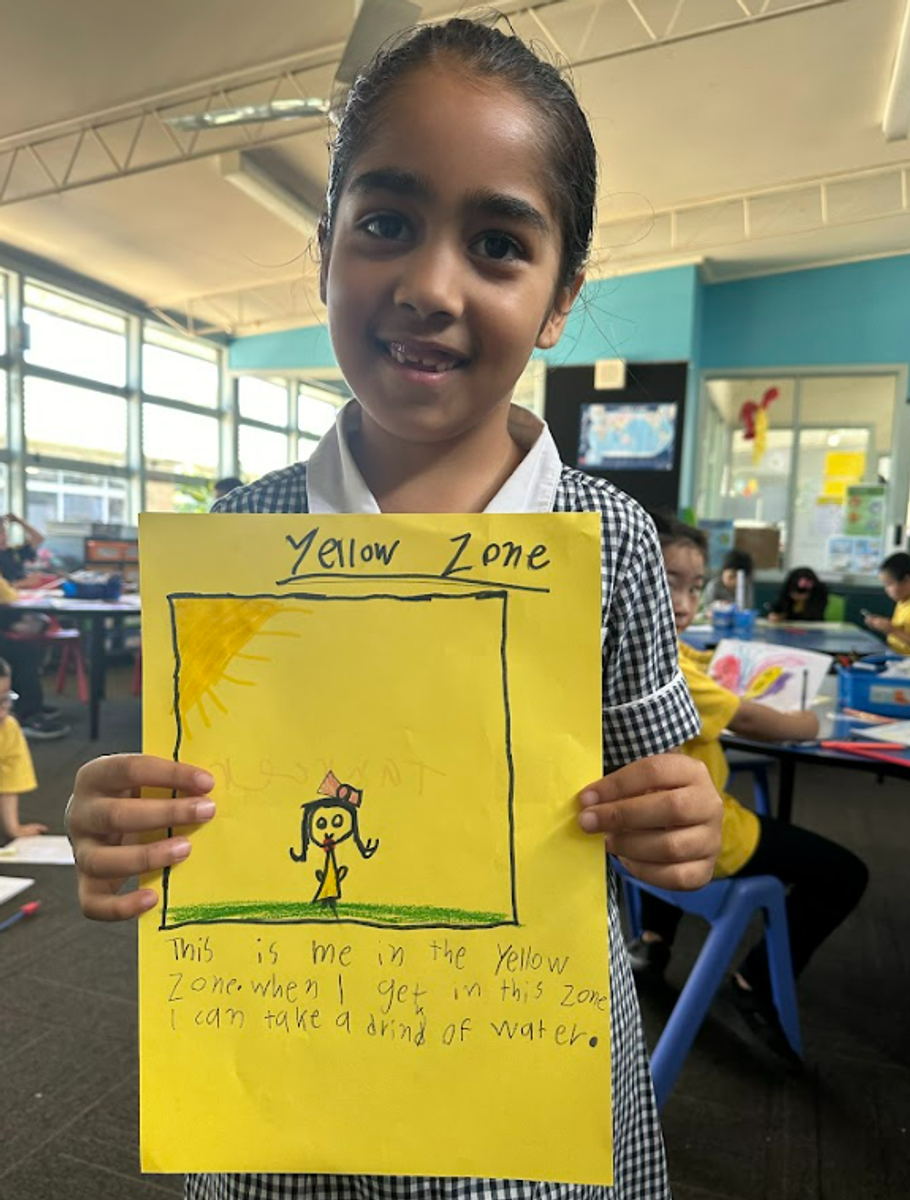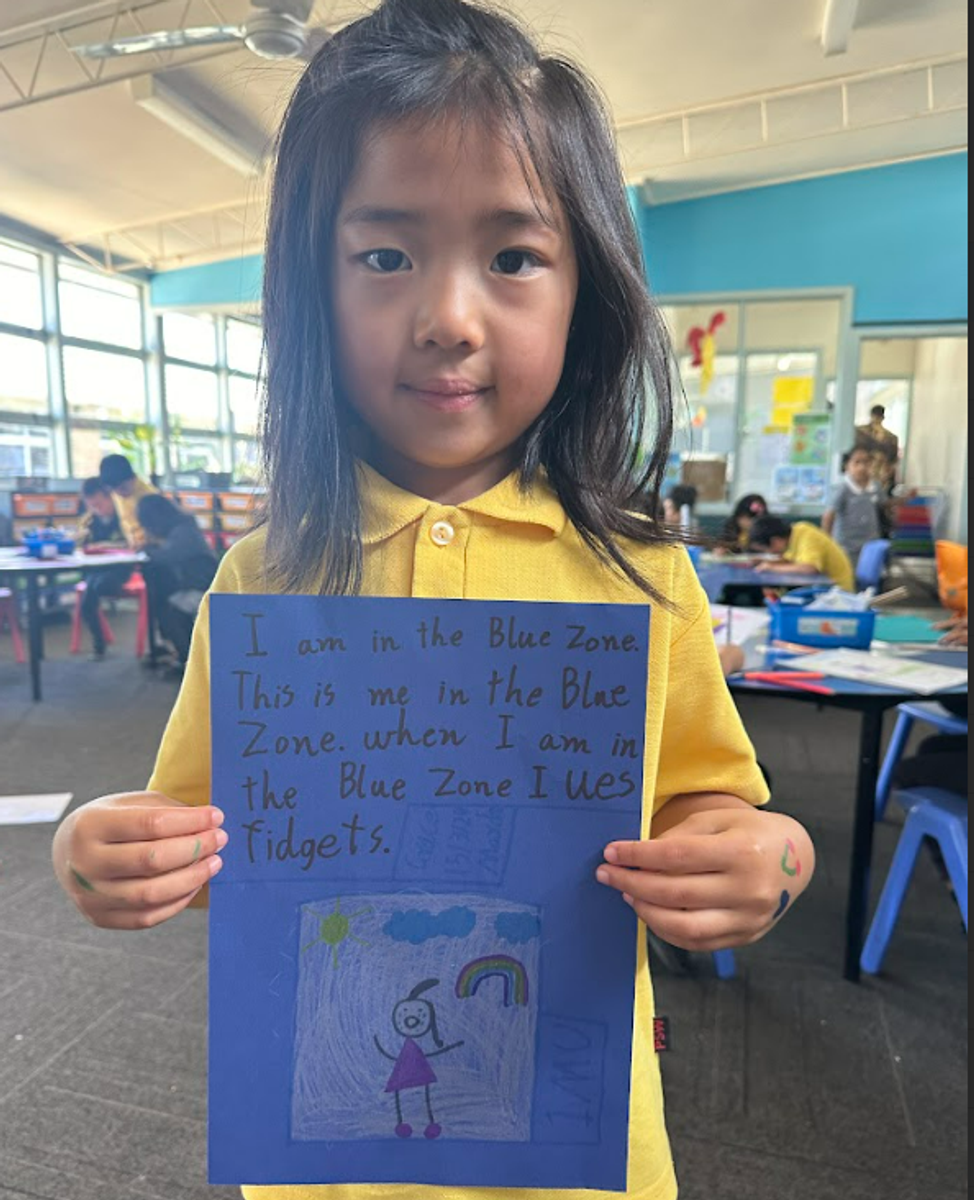
Wellbeing Year 1
Zones of Regulation
Exploring Emotional Well-being: Year 1 Students at Burwood East Primary School Share Insights on the Zones of Regulation
At Burwood East Primary School, we believe in focusing not just academic growth but also emotional well-being among our students. Recently, our Year 1 students explored understanding their emotions through the framework of the Zones of Regulation.
The Zones of Regulation is a curriculum designed to help children recognise and manage their emotions effectively. It categorises emotions into four zones: the Blue Zone (feeling sad, tired, or bored), the Green Zone (feeling calm, happy, or focused), the Yellow Zone (feeling anxious, frustrated, or excited), and the Red Zone (feeling angry, out of control, or terrified).
Our Year 1 students enthusiastically engaged in discussions about these zones, sharing their personal experiences and insights. They identified moments for example, when they found themselves in the Blue Zone, describing feelings of tiredness, sadness, or boredom. More impressively, they articulated strategies they could employ to move out of the Blue Zone and into a happier zone such as the Green Zone.
Some of the strategies our students suggested included:
- Taking deep breaths to calm down.
- Engaging in a favourite hobby or activity.
- Seeking comfort from a trusted friend or teacher.
- Taking a short break to rest and recharge.
- Reading and drawing their favourite things.
Here is what some of our students have had to say!
Mashal 1A - When I am in the Blue Zone, I feel sad and I use drawing to get me back to the Green Zone.
Josh 1A - When I am in the Blue Zone sometimes I feel sad, but I can sit next to someone to help me feel better.
Christian 1A - When I am in the Yellow Zone I usually read a book.
Jadyn 1A - When I am in the Blue Zone I take four deep breaths.
Isabella 1A - When I am in the Blue Zone I feel sad but I use breathing to help.
Ryan 1A - When I am in the Green Zone I feel happy and I make stuff.
As parents, you play a pivotal role in reinforcing these lessons at home too. We encourage you to continue the conversation with your children about emotions, providing them with a safe space to express themselves and offering guidance on healthy coping mechanisms.
Thank you,
Angela and the Wellbeing Team.


